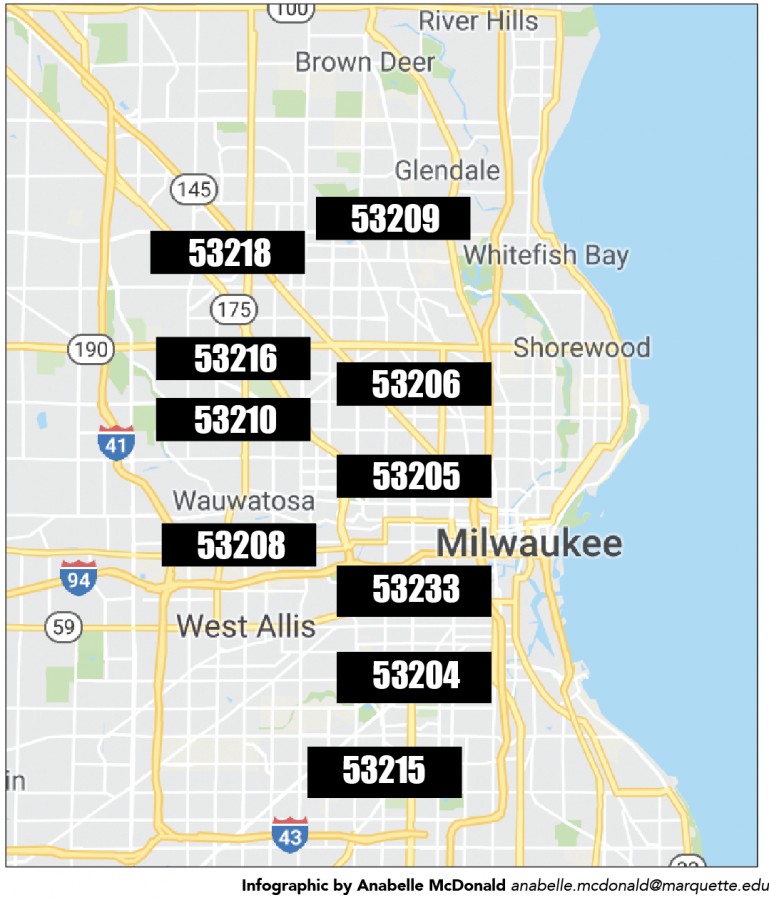The American Red Cross is famous for a litany of community outreach programs, disaster relief among them. Of the disasters the Red Cross responds to, home fires make up the majority. This is considered an invaluable service by many in Milwaukee, which is why when the Red Cross announced a new policy in December, a lot of people felt the need to speak out.
The Red Cross enacted a policy halting on-site aid to apartment and house-fire victims in 10 Milwaukee zip codes, encompassing nearly all of the inner city and the Avenues West neighborhood that surrounds Marquette’s campus. Fire victims would still be able to go to a Red Cross office for aid. The policy was intended to increase efficiency, a Red Cross spokesperson said.
Given that the areas the Red Cross said it would no longer be offering on-site fire aid to are predominantly minority neighborhoods, the decision drew a considerable backlash.
Alderman Khalif Rainey called the decision “a slap in the face” to the people living in those neighborhoods, and equated it to the historically discriminatory practice of redlining. Alderman Bob Donovan said it seemed the Red Cross perceived those neighborhoods as unsafe, and pressed the organization for further explanation.
The overwhelming consensus from Milwaukee’s civil servants was that this policy would disadvantage minority populations across the city, and they let that be known.
Following the public criticisms, the Red Cross issued a formal apology and reversed the policy. Without outspoken opposition from several of Milwaukee’s elected officials, the reversal would have been unlikely.
The prevailing message here is that civil servants can still defend their constituents.
There’s an argument to be made for the fastidiousness and resolve of local government, but that argument is almost always sanctimonious and removed from reality.
Local governments are fallible and have often made decisions that disadvantaged a portion of their population. Regardless of occasional successes, Milwaukee’s history is marred by inadequacies and decisions like these.
Milwaukee is still one of the most hostile cities toward minority growth. With a dramatic wealth gap between white and non-white families, a wide graduation gap between white and non-white students and record-setting segregation, the city is far from perfect.
The failure of governments to address issues like these has deservedly led many to become disillusioned with government and has effectively lessened America’s faith in institutions.
That is why seemingly small victories like the reversal of the Red Cross policy are so significant.
Living in a politically charged environment almost guarantees the vilifying of politicians and government agents. It is difficult to represent a diverse and diffuse population. Successes are small and failures are monumental.
The number of civil service-related degrees awarded annually has been on the decline, and it seems that fewer young people perceive civil service as desirable. Whether this is due to the difficulty of the job or the relentless media coverage of candidates remains unclear.
It is a large task to speak for a community, especially when it is impossible to meet everybody’s needs. For people who feel abandoned by their representatives, seeing those representatives fulfill a promise is significant.
Growing cities are often accused of sacrificing low-income and minority populations for the sake of progress. It is refreshing to see civil servants standing up for their community and using their positions to provide a voice for their constituents who often get overlooked. Hopefully, this victory will lead to further city unity.




